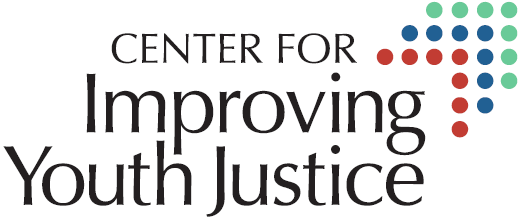Our Story
Our work improving youth justice began in 1994, amidst the wave of reforms resulting from the superpredator myth, which wrongly predicted a generation of excessively violent youth, particularly young Black men, and resulted in laws and policies that increased led to the belief that punishment and adult prisons were the solutions to stop juvenile crime. We weren’t buying it. We knew justice-involved young people are infinitely capable of changing, learning and thriving they just need the right supports, services and opportunities. We set out to create resources and tools to promote effective, evidence-based practices that recognize the unique strengths and needs of justice-involved young people to improve their life outcomes.
The Office of Juvenile Justice and Delinquency Prevention (OJJDP), Office of Justice Programs, US Department of Justice called for the development of national standards to improve our nation’s secure juvenile facilities and our newly formed organization, the Council of Juvenile Correctional Administrators (CJCA, now Council of Juvenile Justice Administrators) was selected.
Ten years later the Performance-based Standards Project for Juvenile Correction and Detention Facilities (PbS) project won the prestigious Innovations in American Government Award from the Ash Institute for Democratic Governance and Innovation for uniquely and effectively addressing the poor conditions in youth facilities. OJJDP worked with us to establish a nonprofit dedicated solely to expanding and sustaining the work at the end of federal funding: The PbS Learning Institute, Inc.
Since incorporating in 2004, we have expanded beyond our original program. As the reliance shifts from secure residential facilities to community-based programs, we adapted our standards and continuous improvement program for community residential and supervision agencies. We promoted positive youth outcomes and indicators of success rather than recidivism and failures. We started the national Kids Got Talent Contest to encourage and celebrate their talents. We saw young people facing insurmountable barriers to continuing school and getting jobs resulting from system involvement, we created the Education and Employment Foundation to raise awareness and funds to provide scholarships, reentry assistance and employment support. Our national database grew to be arguably the most comprehensive and timely youth justice data available. We built the Database for Researchers so data can be used to continually increase what we know about youth justice.
Young people end up in the juvenile justice system most oftenafter other systems: child welfare, education, mental health, foster care have failed them. Many never had a chance due to their life circumstances. They’ve told us what they need and want can be as simple as one caring adult they trust. One unexpected opportunity: feeling safe, feeling seen, receiving a scholarship or feeling valued. We continue working to help them in any way we can.
“Good, better, best. Never let it rest. ‘Til your good is better and your better’s best.”
– Barbara Allen-Hagen, Original OJJDP Project Monitor
